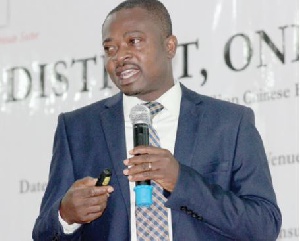Business News of Tuesday, 10 April 2018
Source: thebftonline.com
AGI tackles poor sanitation with plastic bricks
The Association of Ghana Industries (AGI), working through the Ghana Recycling Initiative by Private Enterprises (GRIPE), has kicked off the pilot phase of its modified concrete project that seeks to promote a clean and safe environment.
For a pilot, the association has engaged a consultant to work with the Council for Scientific and Industrial Research (CSIR) to develop plastic concrete bricks which will be used to build places of convenience in some communities.
Aside supporting government’s plastic waste management agenda, the innovation is also expected to enable contractors purchase bricks at a relatively cheaper price compared to what is already available on the market.
Chief Executive Officer of AGI, Seth Twum Akwaboah, told the B&FT at the launch event that the GRIPE initiative was forged by responsible companies that want to contribute positively to society by fostering a safe and clean environment.
“As a business association, together with our member companies, we are very concerned about the plastic menace and are conscious of the environment because it is only when society lives in a healthy environment that business could continue to make money.
Anytime it rains, we see plastic choking gutters and causing floods, and others littering the streets. So, we thought of having a second life for plastic waste by way of creating value addition while protecting the environment.”
GRIPE was initiated by 8 companies belonging to the AGI’s fast moving consumer goods sector, and whose operations involve the production or usage of plastic, to collectively help make the environment cleaner and safer.
As an industry-led initiative, it seeks to support government’s efforts in proffering and implementing integrated sustainable plastic waste management solutions through advocacy, public awareness and multi-stakeholder collaborations.
Mr. Akwaboah added: “Our principal objective is to clean the environment and then our second objective is to ensure that we create business and opportunities for our people and then the third is to help our communities with various facilities, including toilets”.











